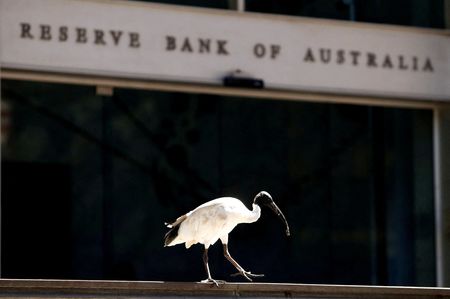 1
1 1
1

SYDNEY (Reuters) – Australia’s top central banker will face a grilling at parliamentary hearings this week after surprising many with a hawkish turn on interest rate hikes that are adding to already punishing cost of living pressures.
Reserve Bank of Australia (RBA) Governor Philip Lowe appears before lawmakers on Wednesday and Friday for hearings into its anti-inflation campaign, which has seen interest rates rise an eye-watering 325 basis points in just 10 months.
After the latest rise last week, the central bank compounded the blow by flagging yet further increases would be needed to contain inflation, which is running at three-decade highs.
Lowe did himself no favours with the media by attending a private lunch of bankers before making any public appearance on the policy shift.
The controversy added to media speculation Lowe might not be re-appointed for a second term as governor as the government weighs its response to an independent inquiry into the central bank’s governance and policy record.
Australian Treasurer Jim Chalmers highlighted the broader issue in the review about how the bank communicates the context for its decisions on Sunday.
“This is one of the things that I’ve been discussing with the RBA Review panel….How they communicate their decisions and the context behind their decisions is one of the key focuses of that,” Chalmers said on ABC Television.
Chalmers said he would receive the review on March 31, and the government would make a decision about Lowe’s re-appointment towards mid-year.
The review, announced by Chalmers in July, is assessing issues such as how the RBA communicates with the public and which inflation targets to follow.
It comes after the RBA undershot its inflation target of 2% to 3% for much of the last decade and issued guidance during the COVID-19 pandemic that rates were not expected to rise until at least 2024.
Now, consumer price inflation is running at a 32-year high of 7.8% and is only projected to return to the top of the bank’s target range of 2% to 3% by mid-2025.
(Reporting by Stella Qiu and Wayne Cole; Editing by Sonali Paul)